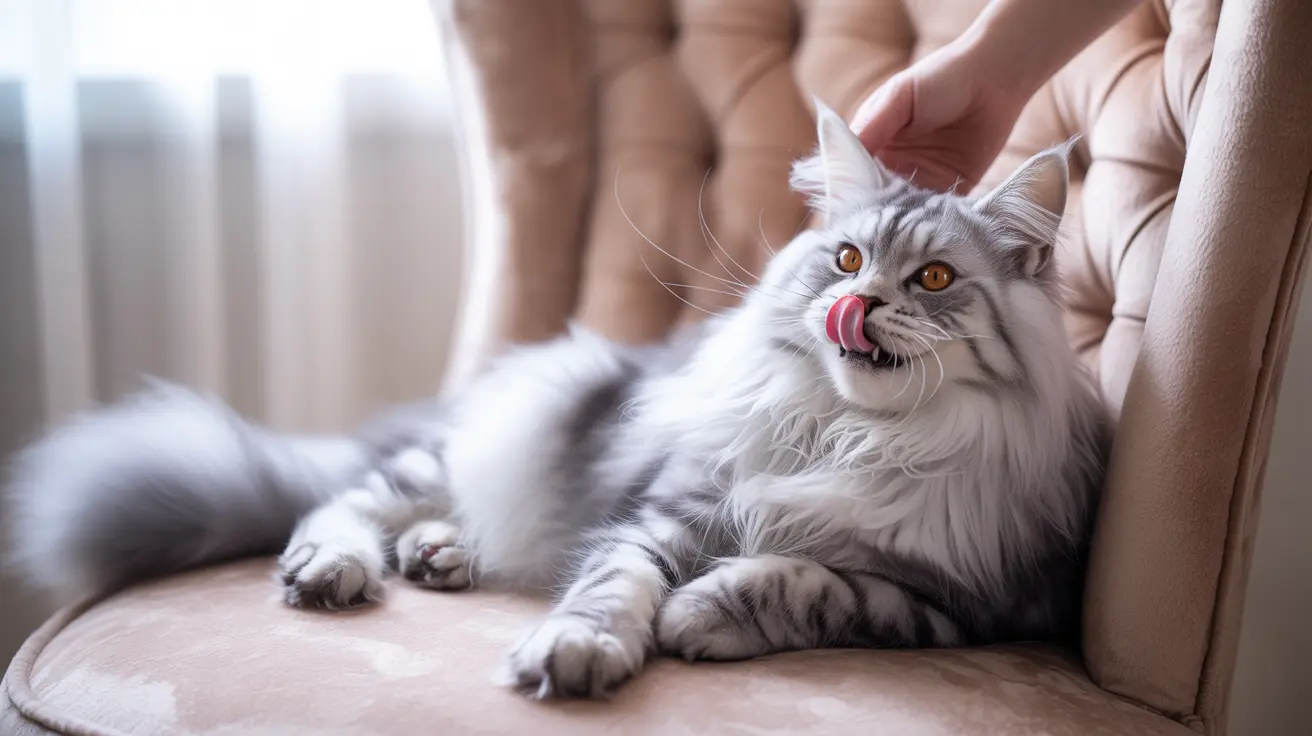If you've noticed your cat smacking their lips, you're witnessing a behavior that can mean several different things. While this action is often harmless and normal, especially after meals or during grooming, it's important to understand when it might signal something that needs attention. Let's explore the various reasons behind this common feline behavior and learn when you should be concerned.
Normal Reasons for Cat Lip Smacking
Post-Meal Cleaning
Cats are meticulous groomers, and lip smacking is often part of their natural cleaning routine after eating. This behavior helps them remove food particles from their mouth and whiskers, ensuring proper hygiene.
Contentment During Petting
Many cats will smack their lips during petting sessions as a sign of relaxation and happiness. This behavior, combined with purring and slow blinking, typically indicates your cat is feeling comfortable and content.
Medical Causes of Lip Smacking
Dental Issues
One of the most common medical reasons for excessive lip smacking is dental problems. Conditions like gingivitis, tooth decay, or periodontal disease can cause discomfort and increased salivation, leading to frequent lip smacking.
Nausea and Digestive Issues
When cats feel nauseous or have an upset stomach, they may smack their lips more frequently. This behavior often precedes vomiting and may be accompanied by decreased appetite or lethargy.
Behavioral and Stress-Related Causes
Anxiety and Displacement Behavior
Cats sometimes use lip smacking as a displacement behavior when feeling anxious or stressed. This might occur during vet visits, when meeting new people, or during changes in their environment.
Response to New Tastes or Smells
Cats have sensitive palates and may smack their lips after encountering unusual tastes or smells. This reaction is typically temporary and harmless unless they've ingested something toxic.
When to Be Concerned
While occasional lip smacking is normal, certain signs warrant veterinary attention:
- Excessive or persistent lip smacking
- Drooling or bad breath
- Loss of appetite
- Pawing at the mouth
- Visible oral injuries or swelling
- Behavioral changes
Preventing Problematic Lip Smacking
To minimize issues that lead to excessive lip smacking:
- Schedule regular dental check-ups
- Maintain good oral hygiene
- Keep toxic substances out of reach
- Provide a stress-free environment
- Monitor your cat's eating habits
Frequently Asked Questions
Why is my cat smacking its lips after eating or during petting?
Lip smacking after eating is typically normal grooming behavior to clean food residue. During petting, it often indicates contentment and relaxation.
What medical conditions can cause excessive lip smacking in cats?
Medical conditions including dental disease, oral infections, nausea, and gastrointestinal issues can cause excessive lip smacking. Some neurological conditions may also present with this symptom.
How can I tell if my cat's lip smacking is due to stress or anxiety?
Stress-related lip smacking often occurs alongside other anxiety signs like hiding, excessive grooming, or changes in litter box habits. It's typically more noticeable during stressful situations or environmental changes.
When should I take my cat to the vet for persistent lip smacking?
Consult a vet if lip smacking is frequent, accompanied by other symptoms like drooling or decreased appetite, or if there are changes in behavior or eating habits.
How can I prevent dental problems that lead to lip smacking in my cat?
Regular dental care, including professional cleanings and at-home tooth brushing (with cat-specific products), can help prevent dental issues. Providing dental treats and toys can also support oral health.
Understanding your cat's lip-smacking behavior is key to maintaining their health and happiness. While often harmless, being attentive to changes in this behavior can help you catch potential health issues early and ensure your feline friend stays healthy and comfortable.






